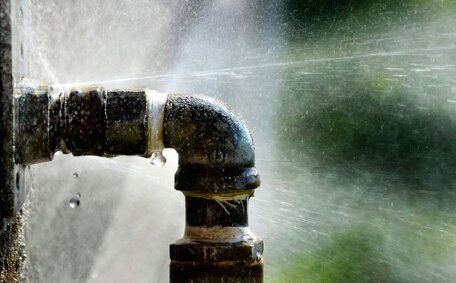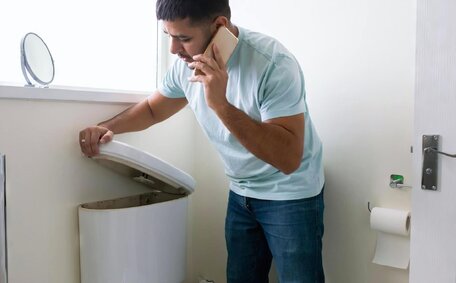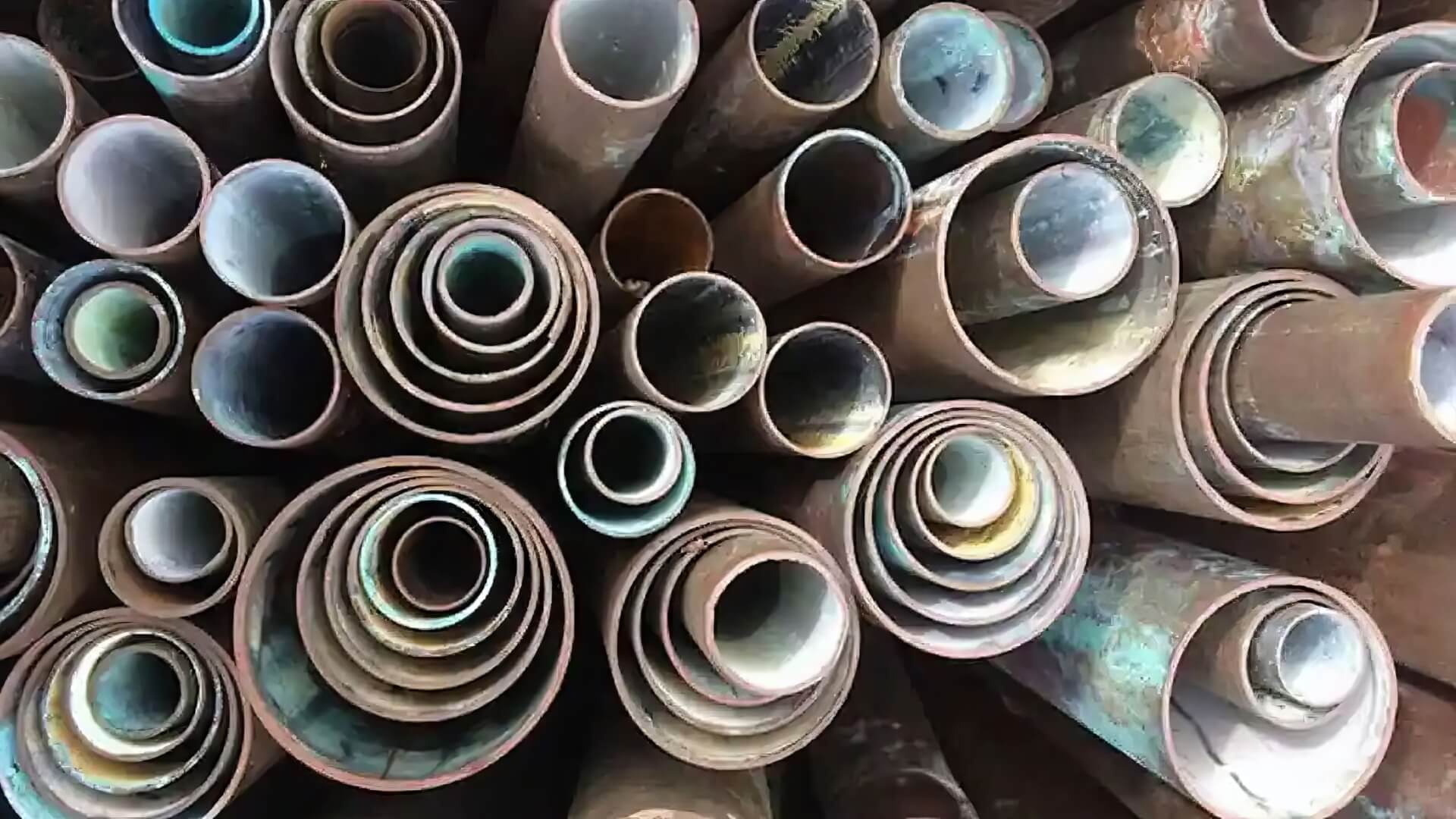
10 Signs Your Hot Water Heater Will Fail
If your water heater is old, leaking, rusty, noisy, not heating water properly or has low pressure, it could fail soon. Get your hot water system inspected today.
Read MoreA reliable water heater is an essential utility in most Mortdale, Sydney homes. There are two main types of hot water systems used to heat water for residential and commercial needs - electric and gas systems.
Electric water heaters with heat pumps use electricity to warm water in an insulated tank, providing constant access to hot water from taps and showers.
Gas water heater units, leveraging natural gas or gas LPG, also heat water in a storage water tank for domestic use. Both gas electric storage tank systems involve heating a set amount of water stored so it’s ready when needed.
Selecting the appropriate hot water system is essential to guarantee a dependable supply for cleaning, washing, and bathing. In Mortdale, properties predominantly use either gas or electric systems.
This article explores the intricacies of choosing a hot water heater, comparing gas and electric models. We’ll examine efficiency, operating costs, environmental impact, and maintenance demands to guide you in selecting the option that suits you best.
Considering a new hot water system, the initial purchase and installation costs are crucial when comparing electric and gas options.
Electric water heaters tend to be less costly initially, with a standard electric storage tank priced between roughly $1,000 and $1,500. In comparison, gas systems, which are pricier, range from about $1,200 to $2,000.
The main expenses for a gas hot water heater system are the unit itself, as well as the gas line installation if you don’t already have gas connected in your home. Depending on how much work is needed, this gas line installation costs can add $500-$1000+ to the cumulative cost of water heaters. Electric systems don’t require a gas line.
Alternatively, solar hot water systems and instant models, though providing immediate access, carry higher initial costs. Solar heat pump systems range from $2500-$4000, while conventional solar systems range from $4000-$8000 for installation.
This is comparable to the upfront cost of some high efficiency gas electric hot water systems.
For basic storage units, electric hot water systems are less expensive initially; however, for advanced models, the initial costs of electric and gas are comparable. It’s advisable to get local plumbing quotes for precise pricing for your property.
Installation of electric and gas hot water systems requires accredited professionals. Consider the following for installation in your area:
- A licensed electrician is necessary for installing electrical connections and wiring for an electric hot water system. They proficiently connect the storage tank and heating elements to your main power supply.
- Plumbers install the hot water storage systems, positioning the storage tank, cold water inlet, and hot water outlet pipes. Commonly, the water tank is situated outdoors or atop a robust concrete base.
- Installation of a standard electric storage hot water system may take 1-2 days. It’s important your installer sizes the tank and heating capacity correctly for your household.
- Upfront installation costs for an electric system are typically $500-$1500 depending on the system size and complexity.
- A licenced gasfitter is required to install the gas line, metre and piping to the hot water unit if you don’t already have a gas supply.
- They will also connect the flue and ensure appropriate ventilation for exhaust gases. Proper fluing is critical for safety.
- Plumbers also address the pilot light during the storage tank, cold inlet, and hot water pipes installation, following procedures analogous to those for an electric system.
- Installation takes 1-2 days for simple gas hot water units. More complex systems with fluing may take longer.
- Installation costs for electric systems are typically lower than for gas, ranging from $500-$2500, influenced by the presence of pre-existing gas lines and meters.
At Mortdale Plumbing, our licenced tradespeople can provide supply and installation services for new electric or gas hot water systems. Contact us today to compare quotes and ensure you get the system your situation requires.
Gas heaters typically offer greater efficiency in heating water than electric resistance tanks, as gas directly combusts and heats the water.
New high-efficiency gas systems, like those using condensing technology to capture waste heat, may exceed 90% efficiency, rivalling electric heat pump systems.
In terms of energy efficiency, heat pump electric units top the list and may be more cost-effective than high-efficiency condensing gas units and conventional electric and gas storage tanks.
Energy costs in the Mortdale region also impact efficiency comparisons. Given that in NSW electricity prices are somewhat steep, using gas often presents a more wallet-friendly choice in the debate of gas vs electric hot water heating solutions. This economic angle can save on operational costs, positioning gas systems as more cost-effective in operation than electric water heaters, bridging the gap in energy efficiency.
Ultimately energy use translates into running costs. We’ll look at the operating costs of electric vs gas hot water systems next to understand how efficiency differences impact the hip pocket over time.
The assessment of long-term costs for a hot water system should prioritise operating and maintenance expenditures.
Electric heat pump water heaters, which are 2-3 times more energy-efficient than traditional electric models, typically incur lower operating expenses, averaging $250-400 annually. In contrast, annual gas bills for a gas storage system can be $400-550+.
Notably, gas systems usually incur lower maintenance costs. Electric units demand replacement of heating elements every 5-10 years at a cost of several hundred dollars, whereas gas systems primarily require burner servicing every 2-3 years to remain safe and efficient.
While electric hot water systems bypass the need for annual gas safety checks, necessary for gas models, they are more susceptible to tank leaks as they age.
While electric systems may be less costly to operate daily, gas hot water systems could offer lower long-term maintenance expenses. For an accurate comparison, it’s best to request quotes from local plumbers, considering your area’s energy rates.
Electric heat pump water heaters, which are 2-3 times more energy-efficient than traditional electric models, typiements every 5-10 years at a cost of several hundred dollars, whereas gas systems primarily require burner servicing every 2-3 years to remain safe and efficient.
The environmental impact is an important consideration when chmissions through optimal combustion.
Electric systems, often seen as an energy saver, have no direct emissions at the point of use. But the electricity generation method determines their overall environmental footprint. Electric hot water in NSW may still have significant emissions depending on the energy mix.
Some energy-efficient electric options like heat pump or pump systems paired with solar water panels can provide low-emission and cost-effective solutions for your home. This aligns with Mortdale environmental initiatives.
Ultimately, while new high-efficiency gas units are cleaner than old systems, electric heat pumps and solar offer the lowest carbon footprint options. This is beneficial for homeowners who prioritise sustainability.
We recommend obtaining advice from local installers like Mortdale Plumbing to select the most appropriate system for your homes needs and environmental goals.
When selecting a hot water system, it is wise to consider the expected lifespan and durability of both electric and gas models.
With proper care, electric hot water systems have an operational lifespan of 8-12 years, though heating elements may need replacement every 5-10 years. Gas systems can last even longer, approximately 10-15 years, with diligent maintenance.
The burner and controls can require repair but the tank itself is durable.
Material quality significantly affects durability. Most electric and gas systems use vitreous enamel lined steel tanks, which are more robust than plastic. Stainless steel tanks, offering the best corrosion resistance, represent a higher initial investment.
Water quality also impacts lifespan. In hard water areas, scaling increases wear on heating elements and tanks. Water treatment can improve longevity for both electric and gas systems.
Regular servicing and anode rod replacement are vital practices to maximise the operational life of hot water heaters. Well maintained gas units generally have a lifespan advantage over electric.
Chat to our team at Mortdale Plumbing to learn more about which best hot water system optimises lifespan through proper sizing, materials, and maintenance.
When selecting a hot water system, it is wise to consider the expected lifespan and durability of both electric and gas models.
Properly maintained electric hot water systems generally last 8-12 years, while gas systems can last 10-15 years with regular maintenance, even though the burner and controls might need repairs.
However, heating elements may need replacing every 5-10 years.
Stainless steel tanks, offering the best corrosion resistance, represent a hsystems, and both electric and gas systems pose risks that necessitate careful management.
Gas hot water systems demand meticulous flue installation to vent exhaust gases securely. Regular servicing and safety inspections are imperative to avert carbon monoxide leaks, underscoring the importance of licenced and compliant installation.
Electric systems must be installed correctly with weathlike anode replacement and leak checks minimise risks too.
Following manufacturer instructions, using licensed installers, and performing regular servicing help ensure the long-term safe operation of any hot water system.
Contact the Mortdale Plumbing team for advice on the safest hot water option best suited to your household.
Choose a hot water system based on your family’s usage and needs. Larger households may benefit from a sizable tank or a continuous flow system, while households desiring constant hot water may prefer tankless heaters, despite higher flow rates being needed.
While gas water heaters fit high-demand homes due to lower energy expenses, electric heat pump systems are ideal for households with lower water use. Your choice should consider costs, energy efficiency, maintenance, and environmental impact.
We hope this article has offered a comprehensive comparison of both electric and gas water heating systems, including those with instant heating capabilities. Nonetheless, expert, customised advice remains unparalleled.
Our experienced plumbers at Mortdale Plumbing have a decade of expertise in installing, repairing, and maintaining hot water systems to help you find the right fit for your home and budget.
Contact us at 1300 349 338 or email jobs@mortdaleplumbingservices.com.au for your hot water system needs.
If your water heater is old, leaking, rusty, noisy, not heating water properly or has low pressure, it could fail soon. Get your hot water system inspected today.
Read MoreIf you have plumbing fixtures that are over 10 years old or showing signs of wear like leaks and cracks, it’s important to replace them to prevent more costly water damage in the future. Replacing worn fixtures improves water efficiency.
Read MorePipe relining is a trenchless method that renews pipes from the inside out. It involves draining, drying and scrubbing the pipe interiors before applying materials like silicone, PMMA or epoxy resins to create a resilient, soft, temporary liner inside the existing pipes.
Read MoreMortdale, 2223 NSW
We will call back as soon as possible.




